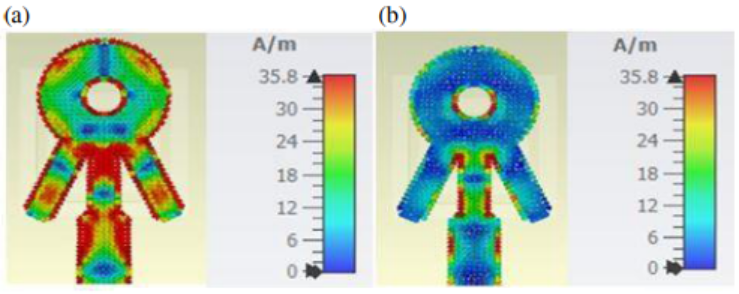Compact Dual-Band for Millimeter-Wave Applications: Designed for Medical and IoT Device Integration

August 2025
Dr Mobayode Akinsolu, Senior Lecturer in Electronic and Communication Engineering, continues his research in the design and optimization of wireless communication devices, in particular: antennas.
Mobayode recently co-authored a paper titled Compact Dual-Band Wearable Antenna for Millimeter-Wave Applications: Designed for Medical and IoT Device Integration which was published in Progress in Electromagnetics Research (PIER) Letters, a journal for “original articles on the frontiers of electromagnetics, and related math and science papers”.
In an era where wearable technology is rapidly transforming healthcare and connectivity, a study undertaken by researchers from the University of Bradford, Wrexham University, and several international institutions presents a compact dual-band wearable antenna designed for millimeter-wave (mmWave) applications that proposes to advance fast 5G connectivity and biomedical devices.
Wearable antennas
Antennas in body-worn devices enable communication between sensors and supporting tech systems and designing antennas that are compact and efficient has been a big focus in the sector, with the mmWave spectrum range of frequencies being key to the research as the tech advances. The human body absorbs electromagnetic energy, meaning that some radio frequency energy emitted from body worn antennas is absorbed by the body which affects the efficiency of the antenna, this is referred to as lossy. The impact of antennas on human tissue is a factor in research and design, with Specific Absorption Rate (SAR) limits being taken into consideration. Uneven contact with the body also impedes effectiveness of the antennas.
In the paper, authors discuss several other research papers which analyse the performance and design of mmWave antennas for numerous applications, noting limitations owing to the materials used. This study addresses issues around rigidity and inflexibility, offering a technical advancement in operating performance, flexibility for wearable devices and ensuring safety for wearable and biomedical applications.
Design
The antenna is fabricated on a semi-flexible Rogers 3003 substrate, measuring just 15 × 15 × 1.52 mm³. It features a circular radiating patch and a full ground plane, initially designed to operate at 28 GHz. To enable dual-band functionality, the researchers incorporated a square split-ring resonator into the ground plane, introducing a second resonance at 38 GHz. To further enhance performance, a “round necktie” configuration was added, two diagonal rectangular patches on the radiating element, which improved bandwidth and gain. The antenna achieves efficiencies of 90% and 78% at the different operating bands. The antenna also performed well under bending stresses and deformation, a critical requirement for integration into clothing, medical tech, or smartwatches.

Figure 1. Current distributions of the proposed antenna. (a) 28 GHz, (b) 38 GHz.
Advantages
Alongside enhanced performance, advantages of the proposed antenna include:
- simulated SAR values falling well below the regulatory thresholds, confirming the antenna’s suitability for biomedical applications
- compact size
- dual-band operations
- high efficiency
Conclusion
Partially supported by the UK Engineering and Physical Sciences Research Council (EPSRC) and the Marie Skłodowska-Curie Research and Innovation Staff Exchange (RISE), amongst others, this research demonstrates the pivotal role innovations like this dual-band antenna will play in shaping the future of smart healthcare. The compact design, robust performance, and safety compliance demonstrate promising advancements in wearable antennas.